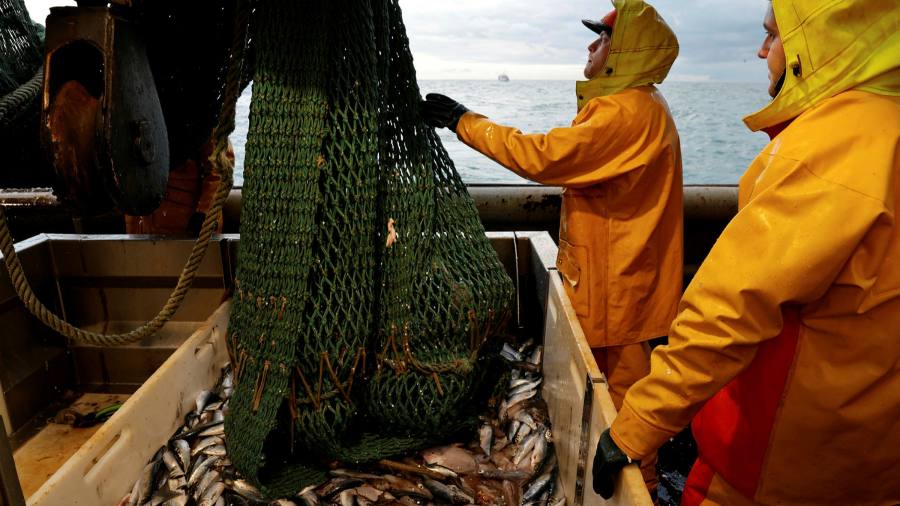[ad_1]
The UK and the EU have clashed over the bloc’s fishing rights in British waters, in an early test of the two sides’ post-Brexit relationship.Â
Britain and Brussels held negotiations this week over how much fish each side can catch from the around 100 species spread across EU and UK waters. The two sides are obliged under international law to work together to set these annual fishing limits.
But people close to the negotiations warned they had hit problems from the start, with the EU even halting talks at one point because of concerns that Britain’s stance violated shared commitments to manage the fish stocks together.
Negotiations subsequently resumed after the UK gave assurances that it did want to work together, but people close to the talks said serious problems remained. “Harm has been done,†said one EU diplomat.
The row began after the UK announced on February 1 that it was considering a total ban on fishing in the British waters that form part of the Dogger Bank area of the North Sea.
The move was enthusiastically welcomed by non-governmental organisations that have long lobbied for stricter conservation measures.
However the proposal was viewed in EU member states as a cynical British step to reduce the bloc’s fishing rights under the guise of environmentalism.
About 85 per cent of the fish caught on Dogger Bank — a 17,600 sq km area that straddles the territorial waters of the UK, Netherlands, Denmark and Germany — is taken by EU fleets. The bloc’s boats caught 34,758 tons of fish there in 2018, compared to 1,318 tons for UK vessels.
The UK move to consider banning fishing in the British waters that form part of Dogger Bank “is not proportionate and disproportionately affects EU fisheriesâ€, said one EU diplomat. “There is no scientific justification for it, not all parts of the Dogger Bank are so vulnerable that they should be closed.â€
Conservation experts disagreed, saying that the UK move was “long overdue†and that the EU’s common fisheries policy had consistently prevented Britain from acting to protect marine environments.
Callum Roberts, professor of marine conservation at the University of Exeter, said the UK step was justified.
“This is very much a proportionate response — and a belated one — to a long overdue need to better manage the nation’s marine environment,†he added.Â
The UK agriculture department said that leaving the EU had enabled Britain to act more flexibly and to follow scientific advice to protect the marine environment.
“The UK now has new powers to introduce protections in offshore marine protected areas with a consultation on the first four sites, including Dogger Bank, currently under way,†added a spokesperson.
Brussels is concerned the British stance in the talks reflects a disregard of commitments the two sides made in their future relationship deal, struck at the end of last year.
Annual fishing talks between the EU and the UK are needed because, while the two sides’ trade deal sets out the relative share of fishing rights each gets for species, it does not solve the issue of the overall amount that can be caught.
International law requires this to be done by negotiations. Normally these should be completed by January 1, but the fact the EU and UK only agreed their future relationship deal in late December means provisional arrangements are in place for the time being.Â
Both the EU and UK are now faced with the prospect of no agreement being ready for when provisional fishing rights expire on April 1, leaving both sides weighing up measures to extend them.
The European Commission declined to comment.
[ad_2]
Source link





